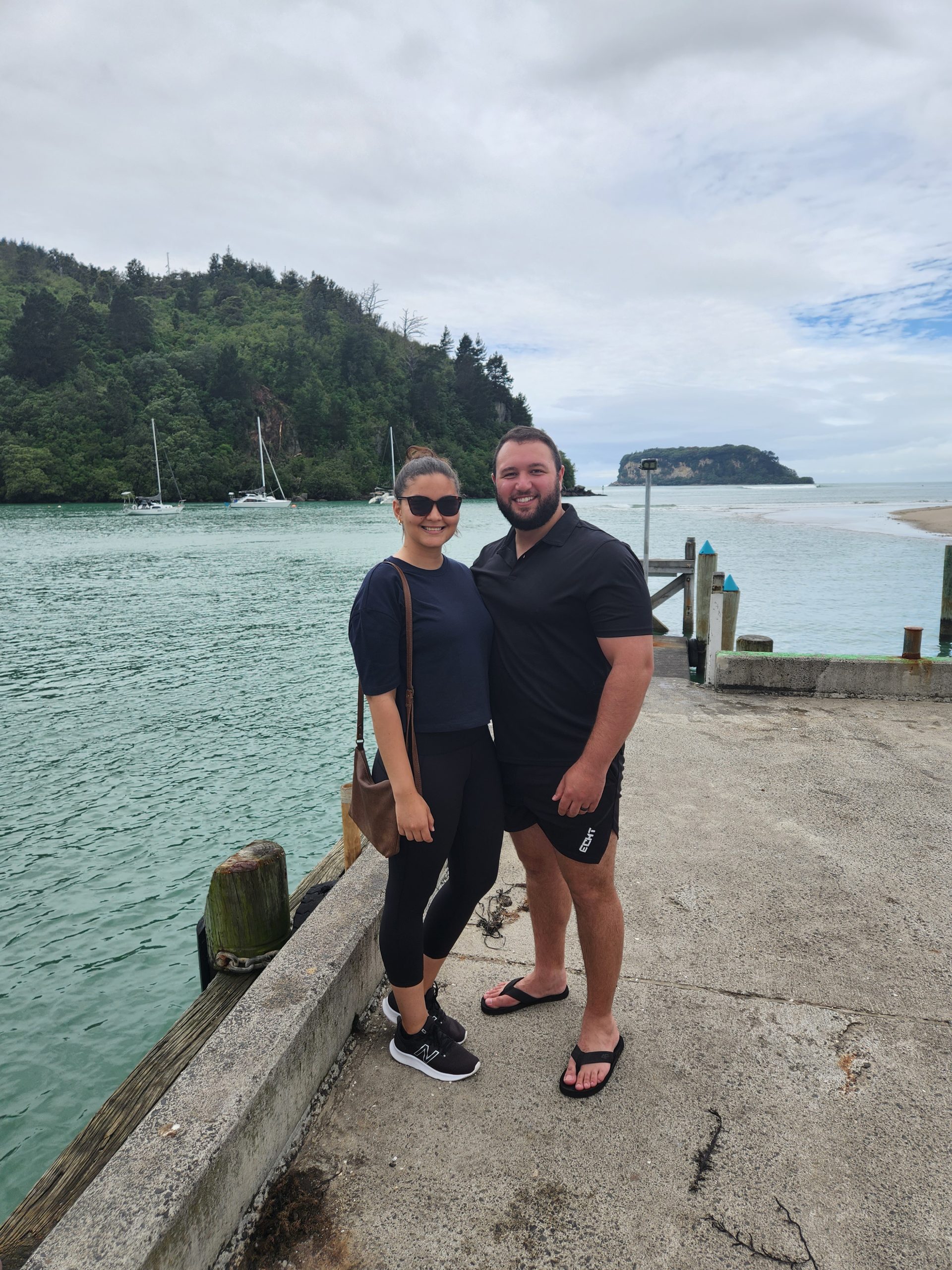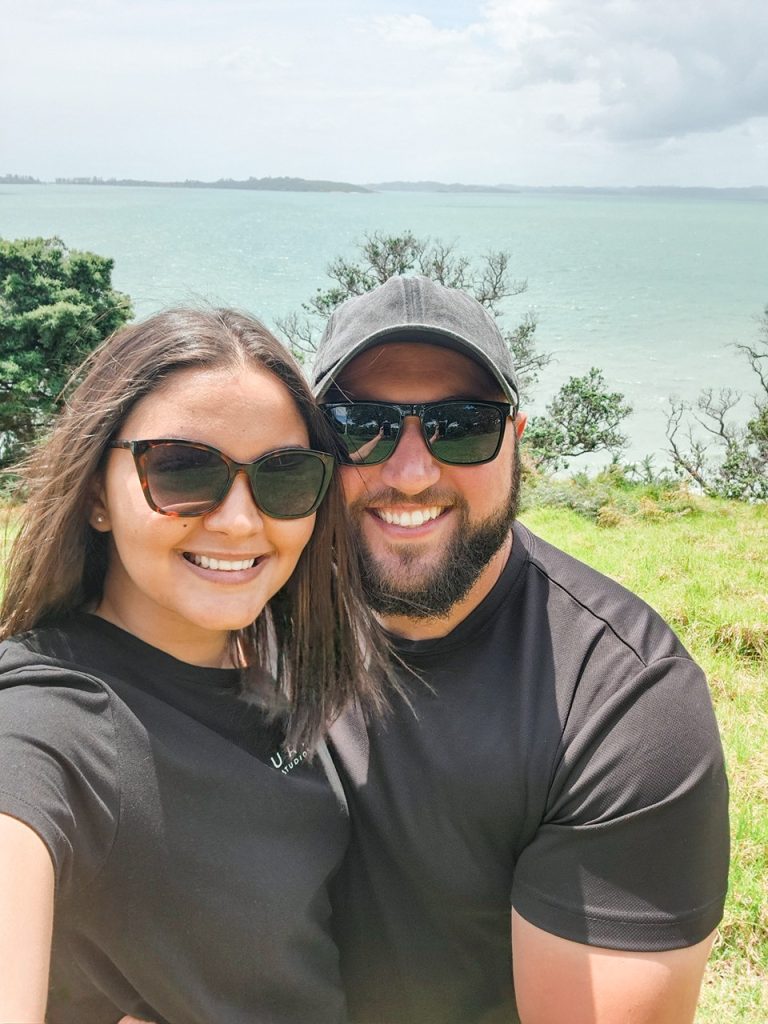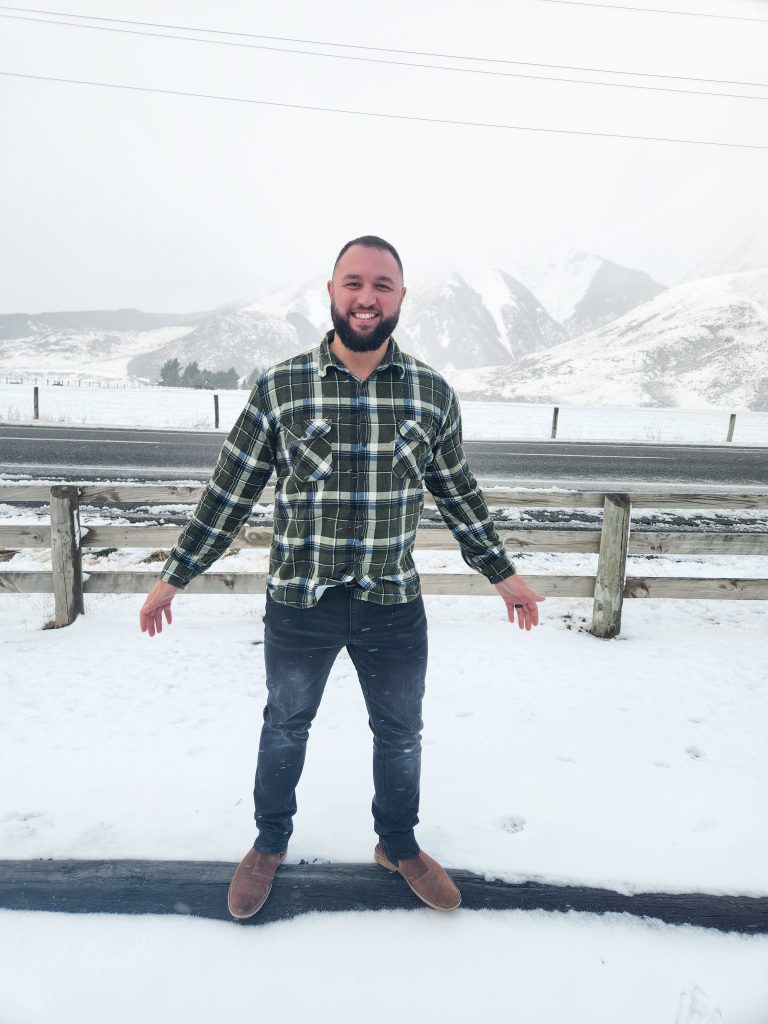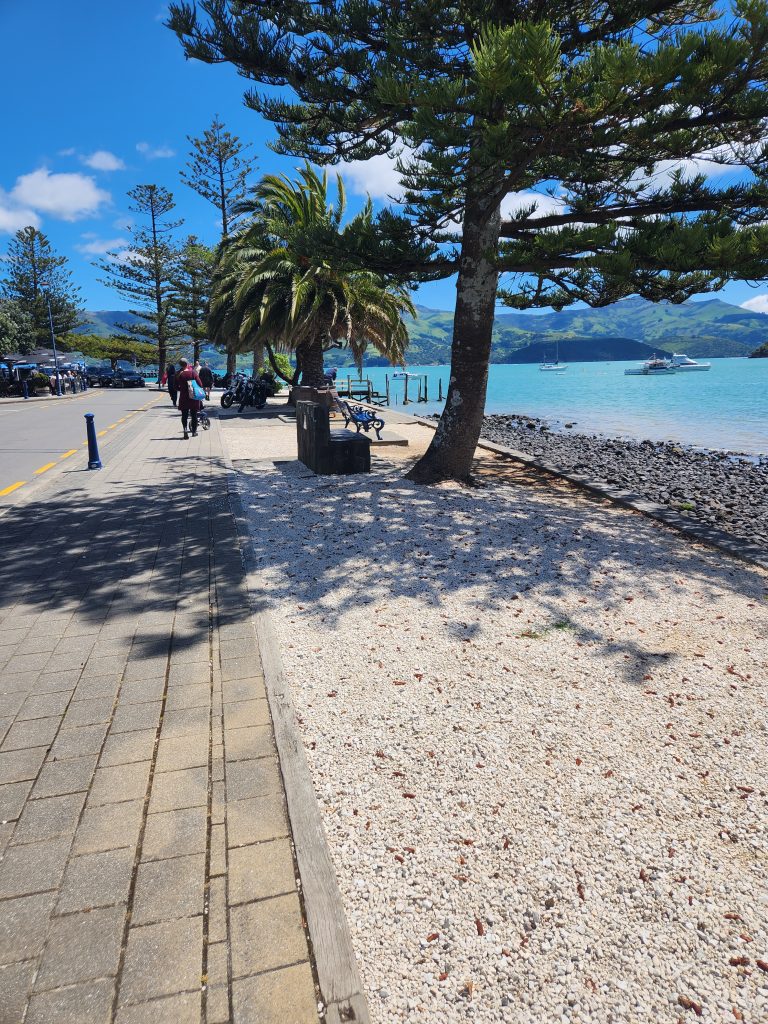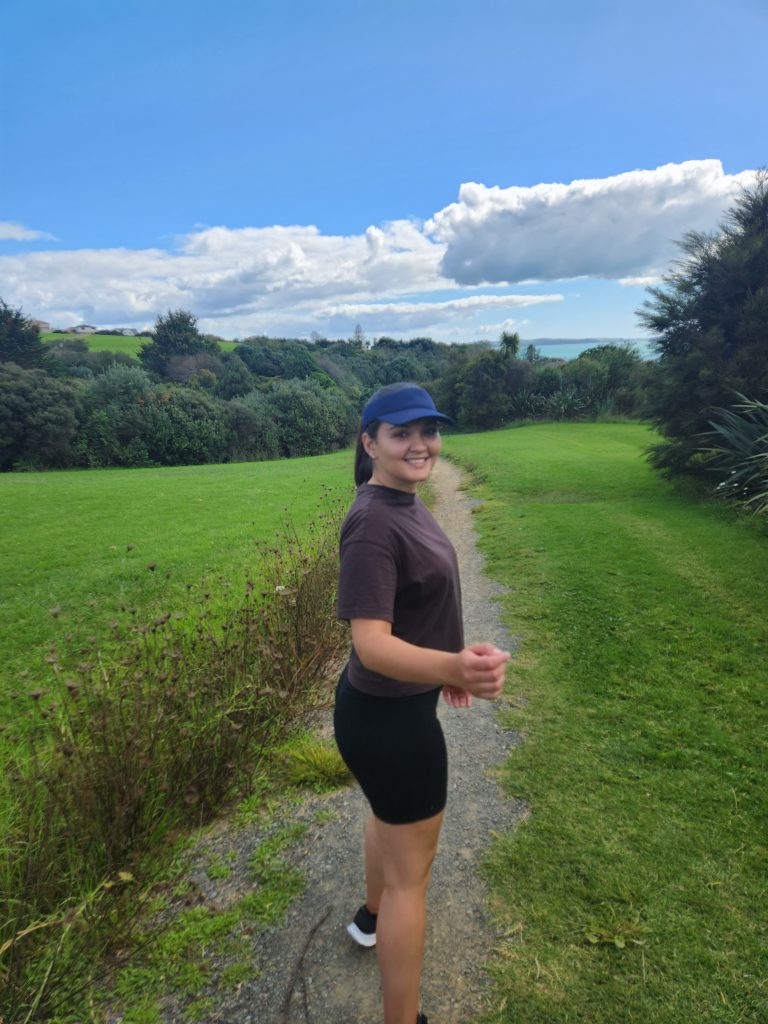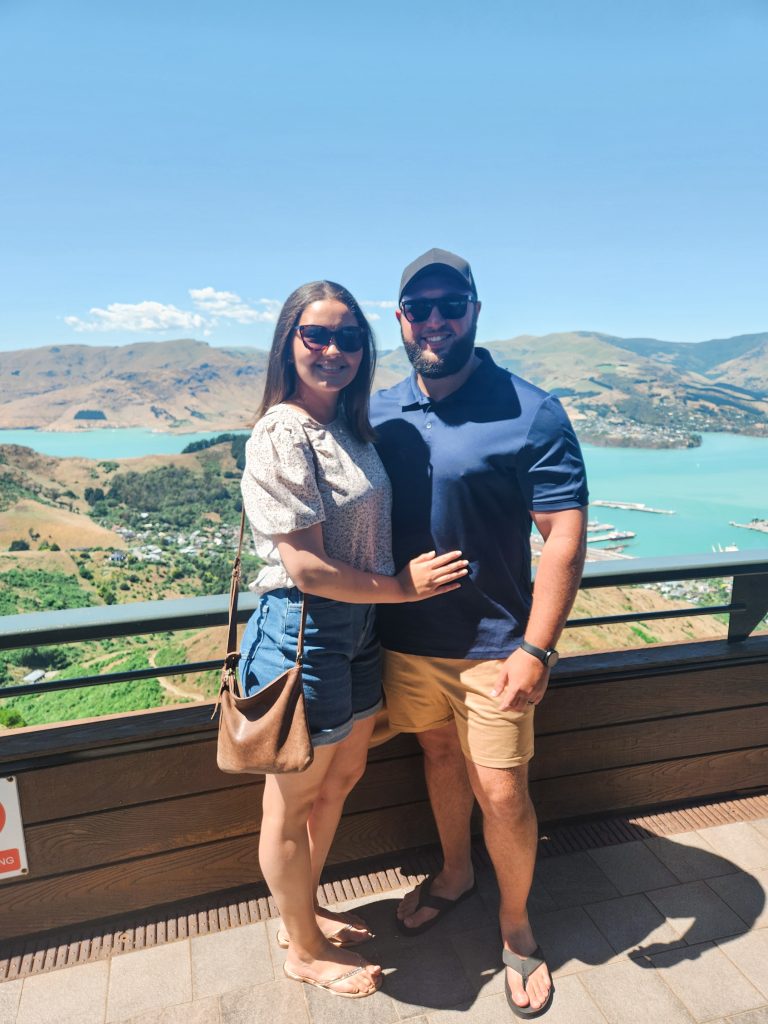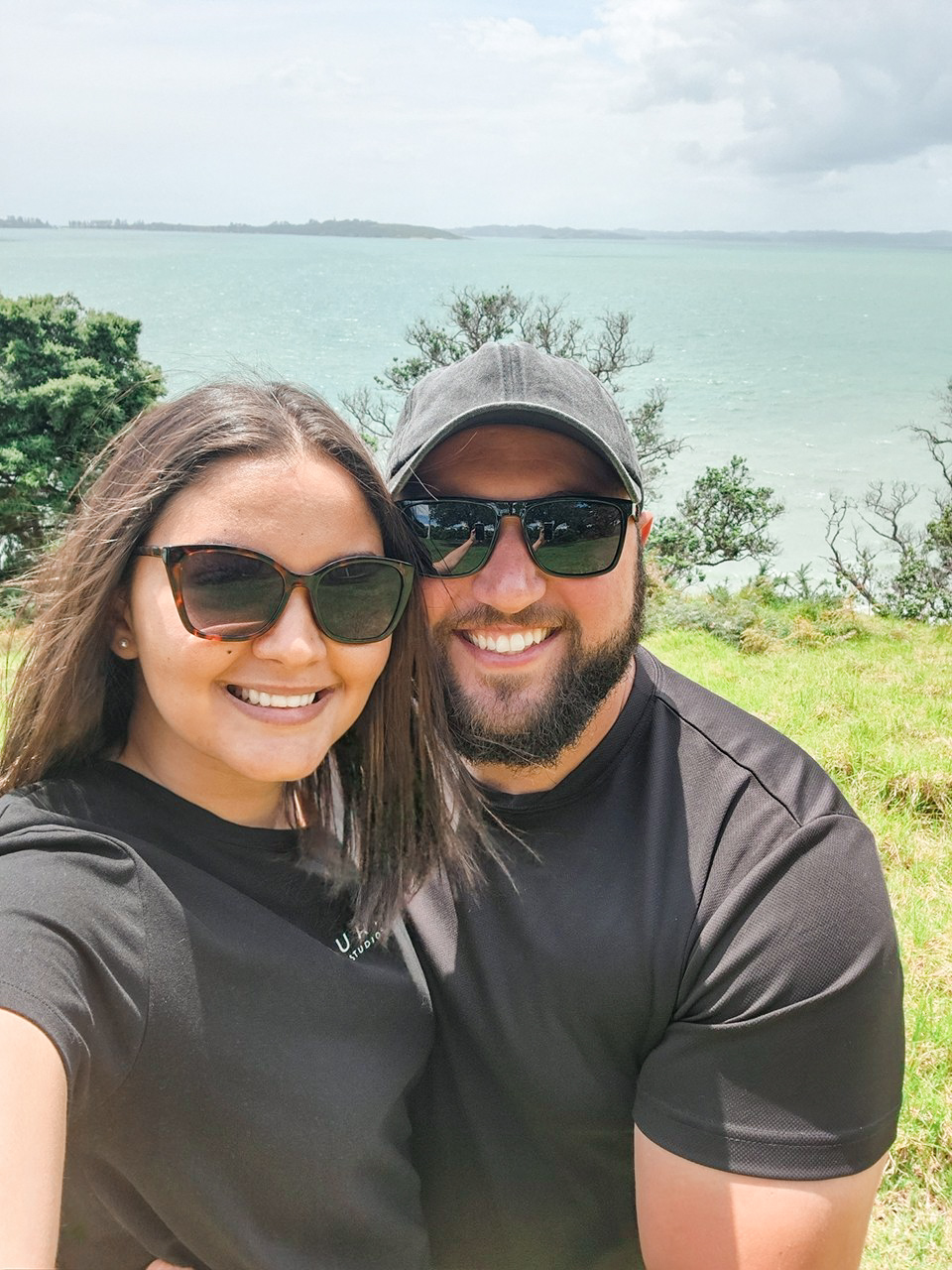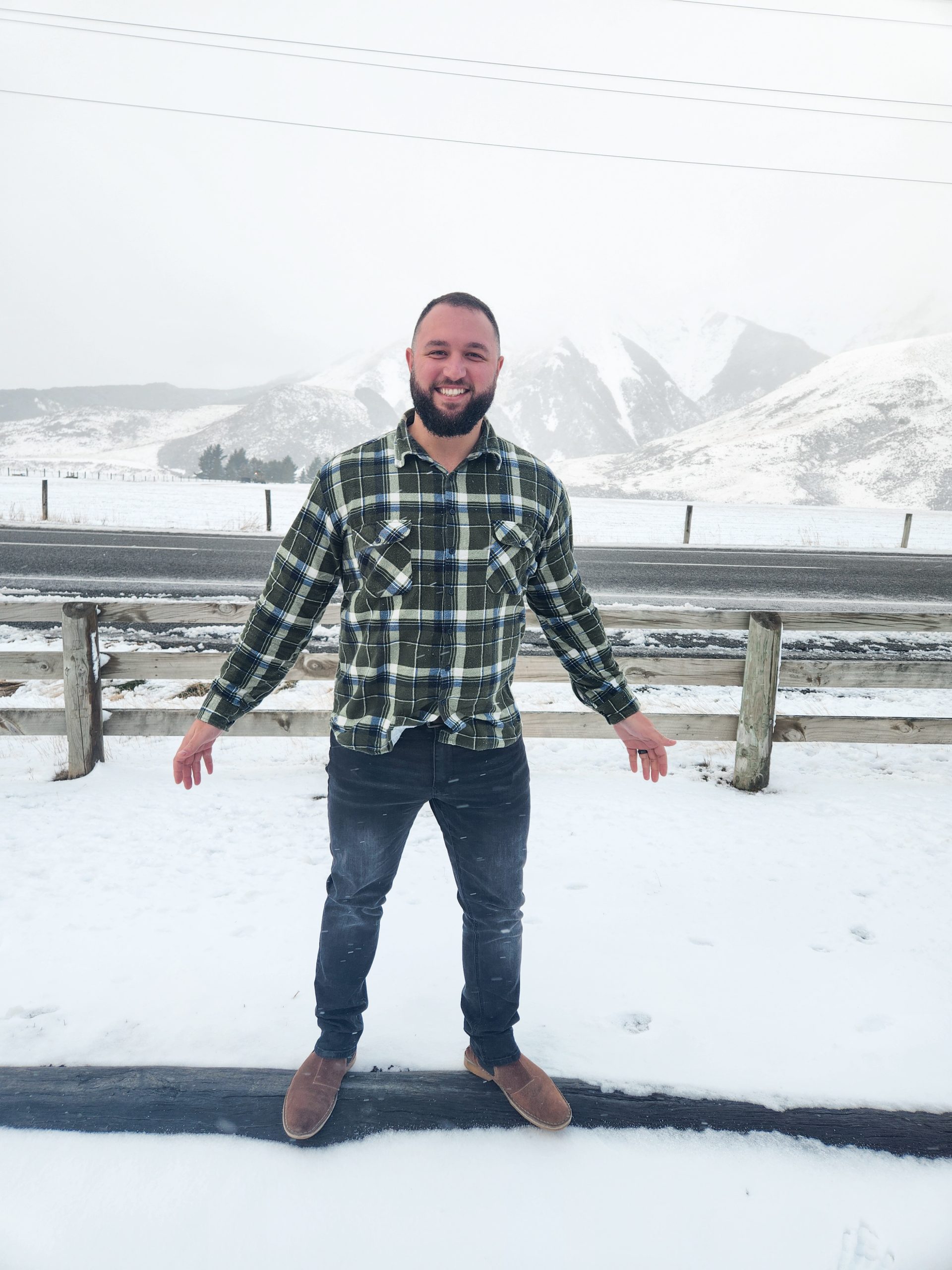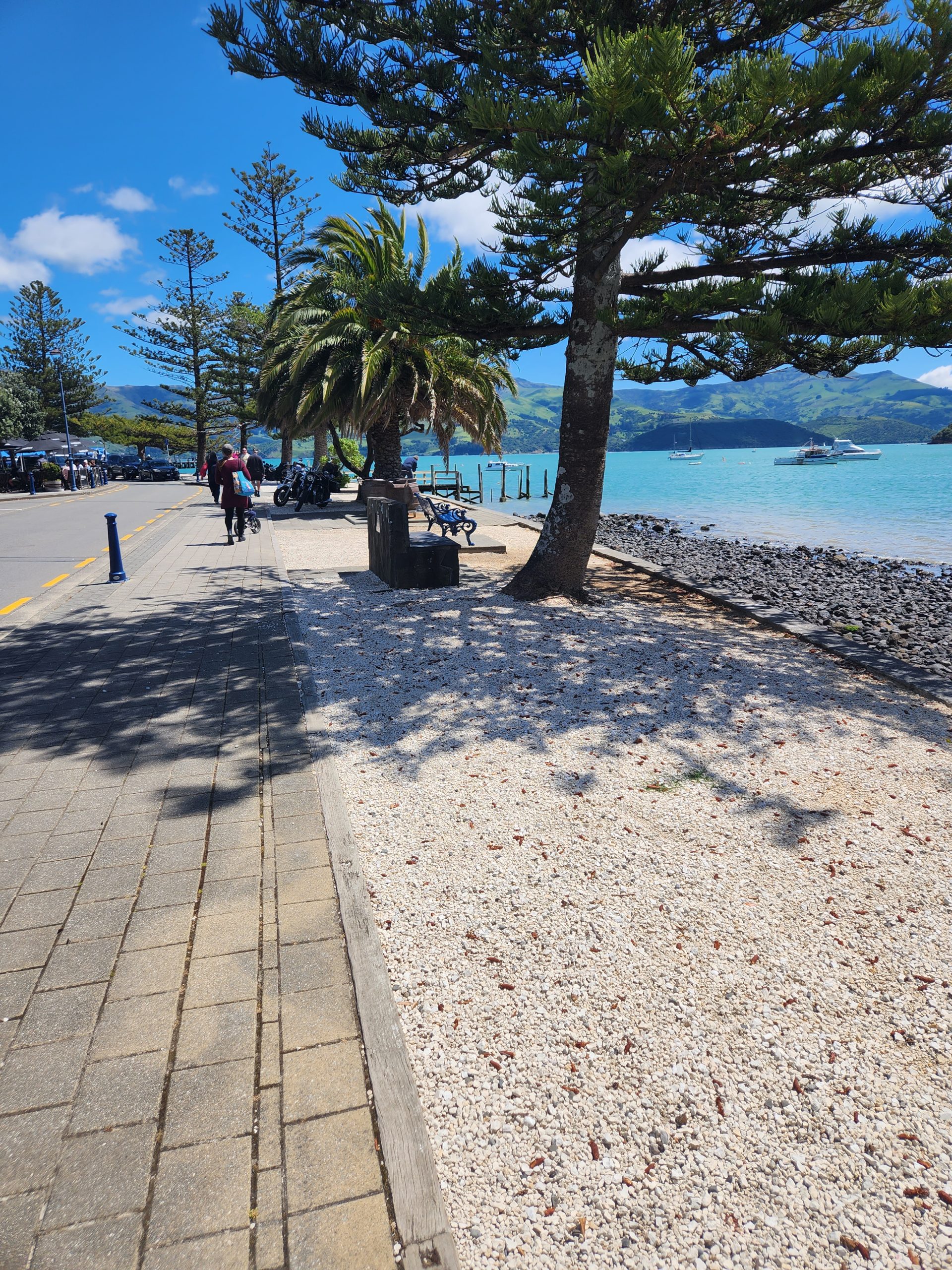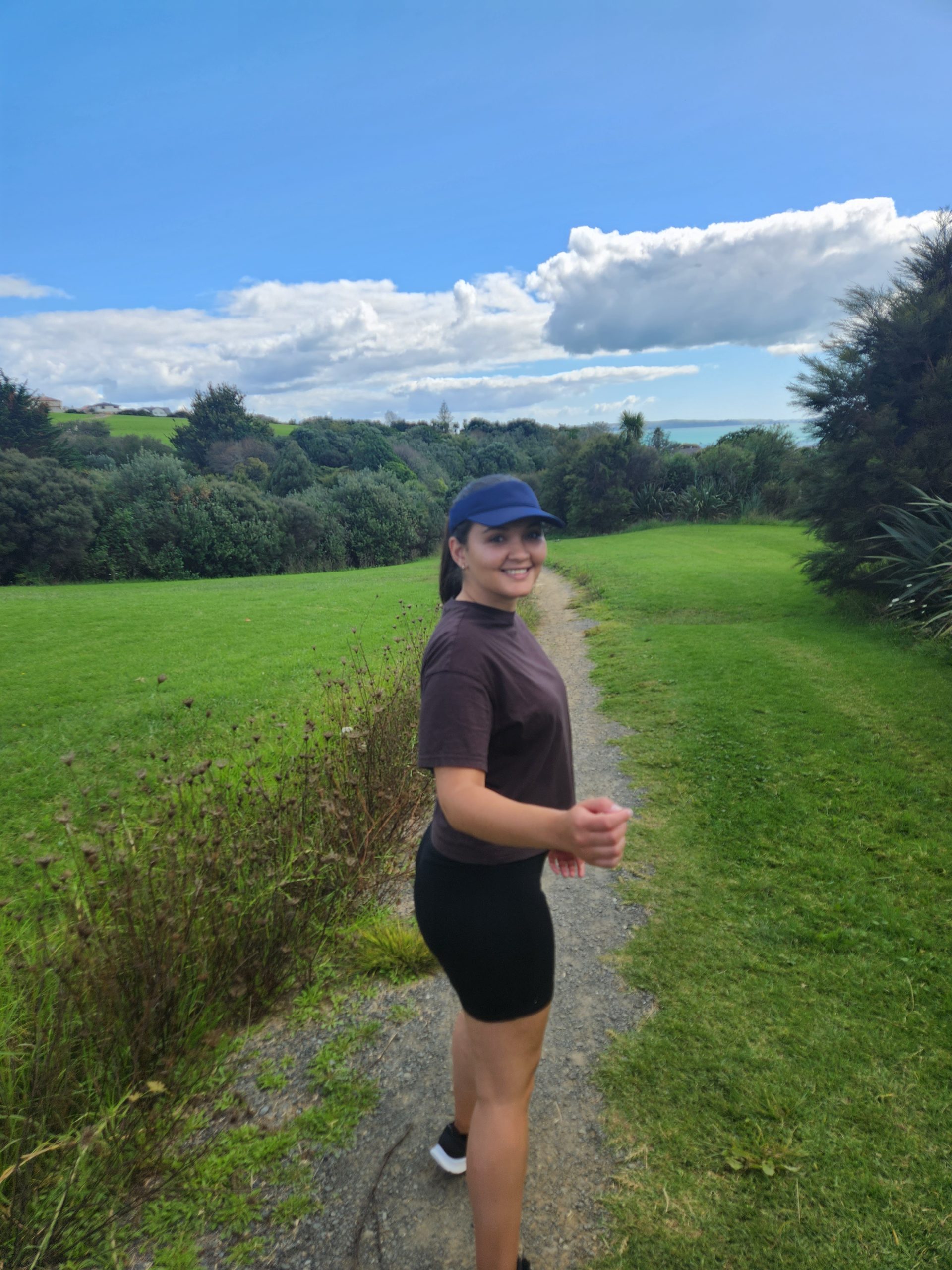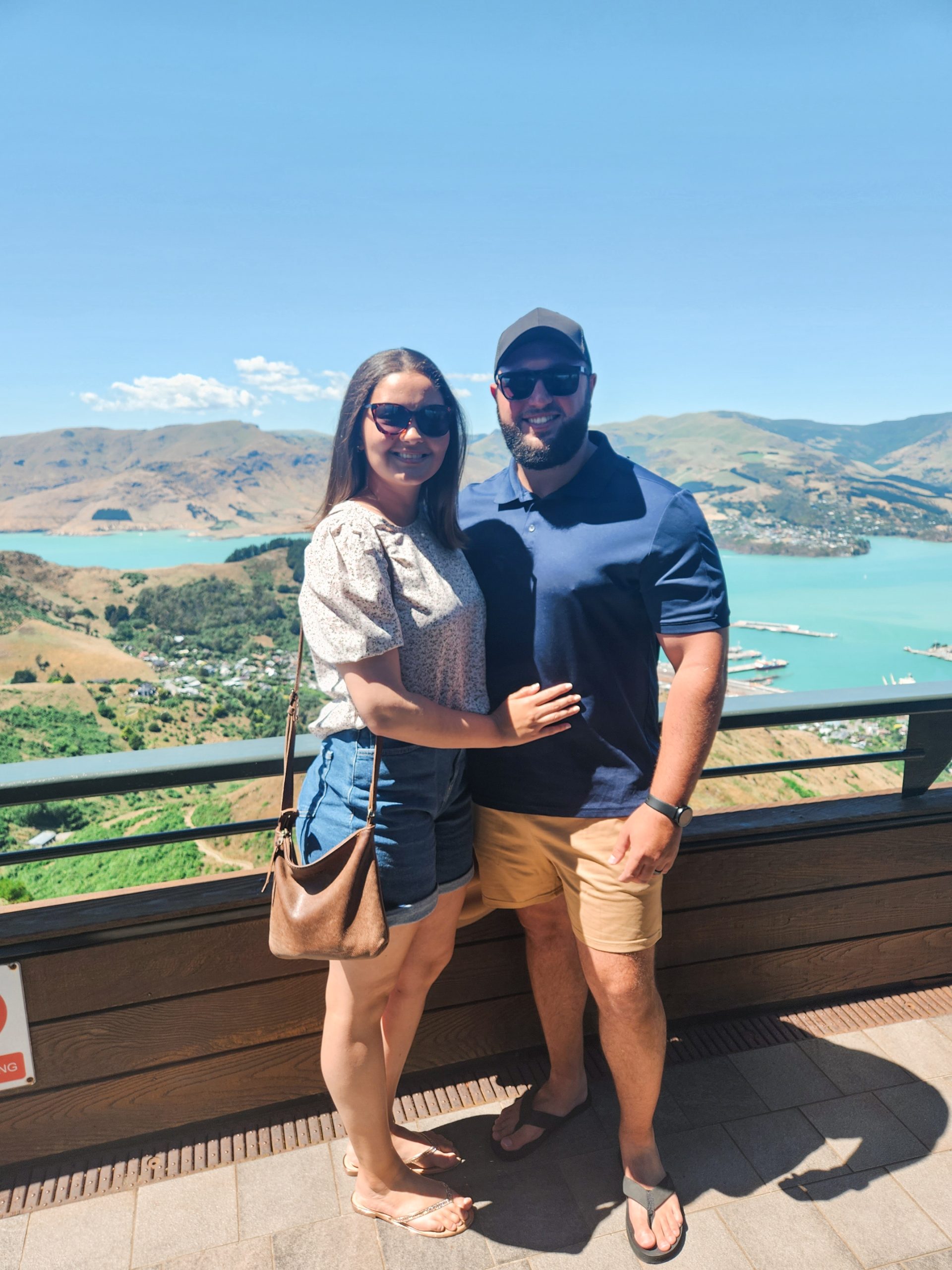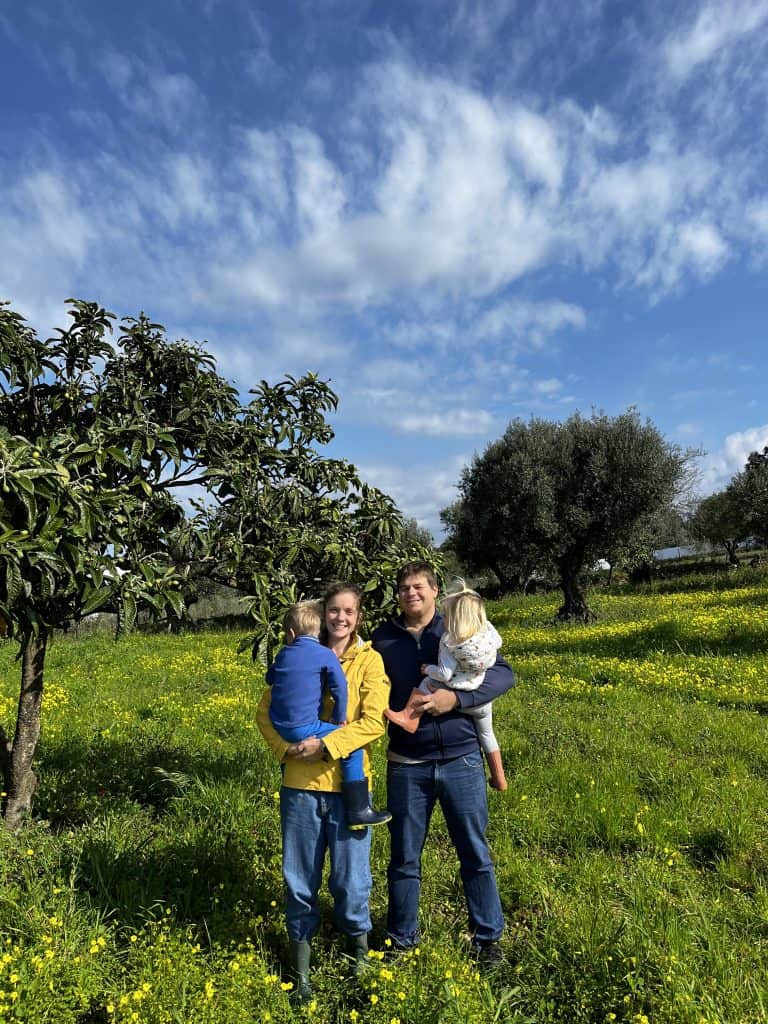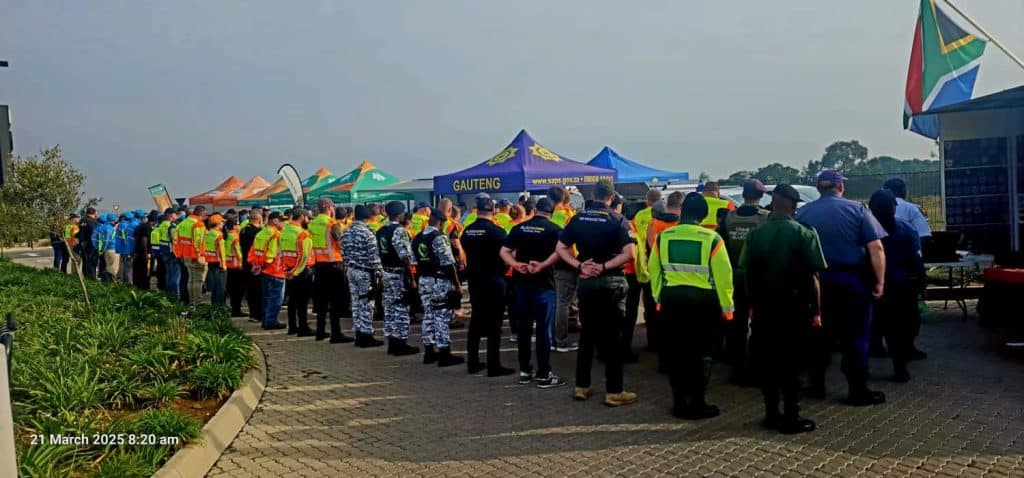Out and about is a column where we talk to people who currently live abroad, or who used to live and work there, but are back in South Africa. We would love to hear from anyone who wants to share their experiences with us.
This week we talk to Sené de Waal, who lives in New Zealand.
Hello Sené! From where in South Africa are you originally, and why did you decide to move to New Zealand?
We are originally from Bellville, Cape Town. My husband and I are both teachers and we were looking for a stabler future for us and our children.
Your first emigration was to Poland. Why did you decide to emigrate from Poland to New Zealand?
Poland was never a long-term plan; it was an opportunity for us to work and tour in Europe while waiting for New Zealand’s borders to reopen again after Covid.
Tell us more about your family.
I have been married for almost five years now to Rynhardt, the love of my life, and we recently welcomed our first-born, Boden, into the world. My husband is a PT high school teacher at the only high school in the town, and I am a kindergarten teacher. We enjoy the outdoors and love touring through New Zealand. We currently live on a very cute agricultural holding in a small town called Hokitika (only 3 000 residents), about 1 km from the sea.
Your little son, Boden, was born recently. How did you manage your pregnancy in the new country?
It was obviously a huge adjustment – and difficult because the family was so far away. The process in New Zealand differs significantly from the one in South Africa. Here you get a midwife; she proved to be a big support throughout the pregnancy. My husband and I support each other a lot and this made the whole process easier.
How did you keep in contact with your family and friends during your pregnancy abroad?
We chatted every day to our friends and family through video calls and WhatsApp messages.
Do you have a support network after Boden’s birth, as he requires extra attention and love?
My husband is definitely my greatest supporter. In our little there are many South Africans whom we have met; some work with my husband. They gladly help and we all support each other whenever we can.
How often does your family see each other?
I last saw my parents in the beginning of 2022, but we are privileged that they will be visiting this coming December to meet their first grandchild. My parents-in-law visited us last December. They have since moved to Canada to support my sister-in-law and her firstborn.
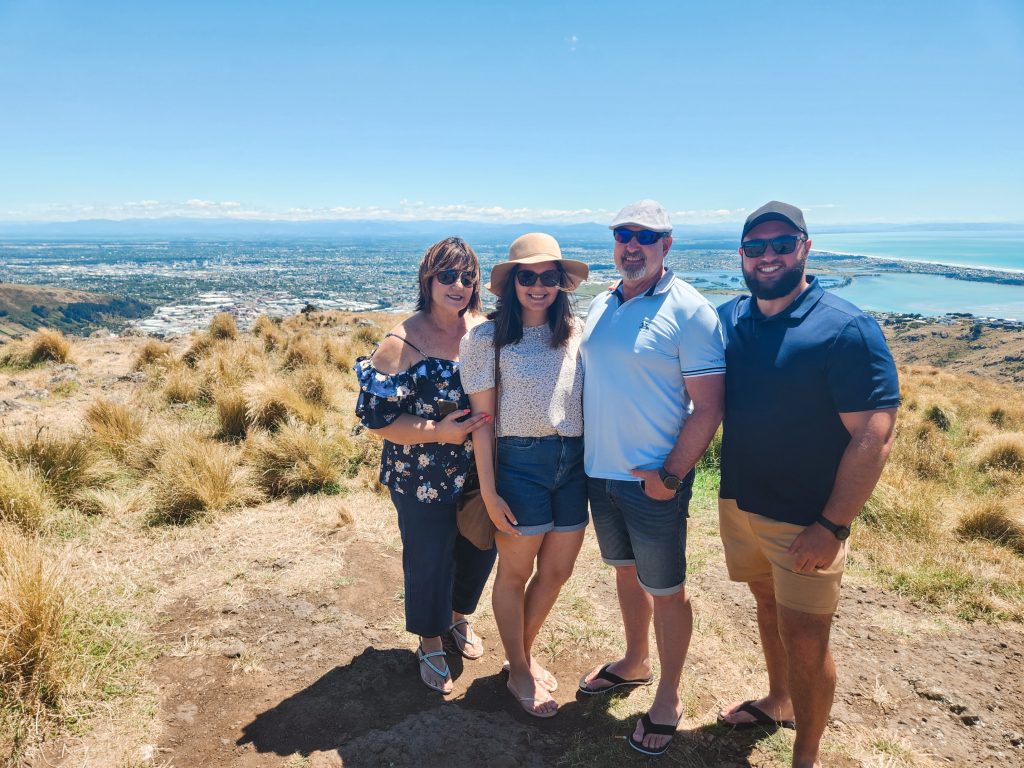
Do you still speak Afrikaans to each other?
Yes, we only speak Afrikaans to each other. We also regularly talk Afrikaans to other South Africans in the town.
Are there any South African traditions that you will be teaching Boden?
We will try to teach him as many South African traditions as is possible. He will definitely braai, fish, support the Springboks and learn to sokkie with his dad. We will only speak in Afrikaans to him, because we know that children pick up English very easily in school and from watching TV.
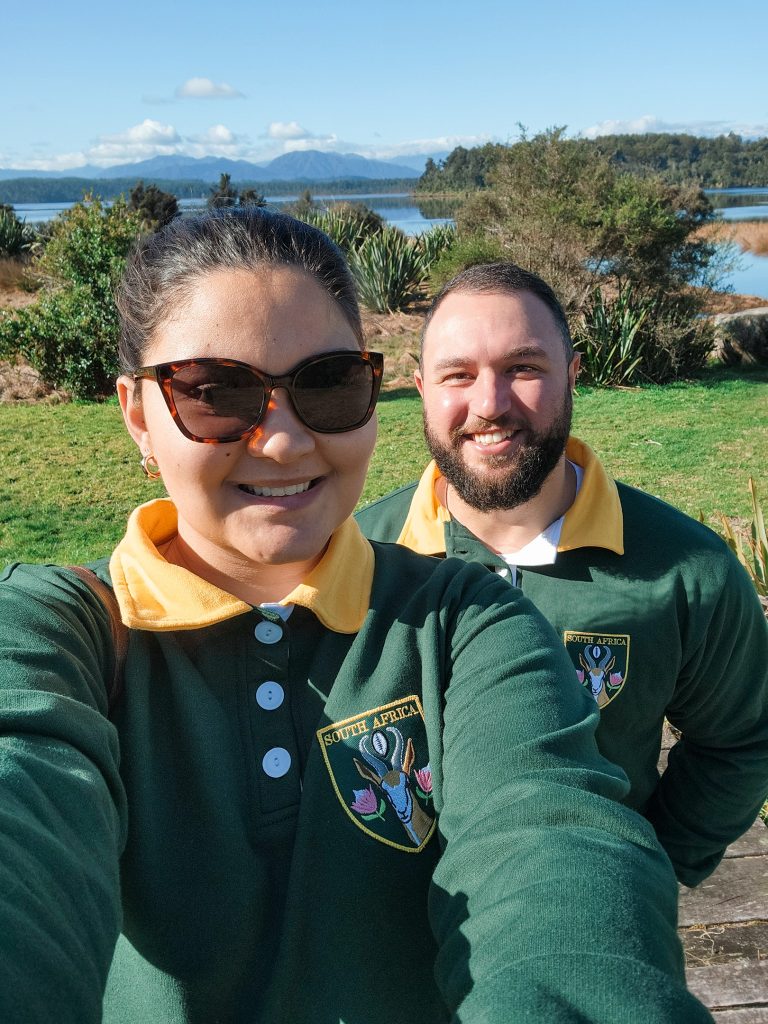
Which Afrikaans resources do you use?
There are many Afrikaans toddler and Bible stories on YouTube. My parents will also be bringing lots of Afrikaans story books that we will be reading to him. We often listen to Afrikaans music in the house and car.
Your husband is a high school PT teacher, and you work in early childhood development. What is a typical work day like?
As a kindergarten teacher I work shifts of nine hours, and start each day at a different time, because each teacher gets a turn to open and lock up. My husband works each day from 08:00 to 16:30; he teaches 20 hours per week and the rest he spends on administrative chores. Everyone in New Zealand starts working later in the day, and therefore we all finish only late afternoon. It is therefore difficult to get all your chores done after work, because most shops and doctors close at 17:00. Only the supermarkets stay open until 21:00 in the evening.
Is life easier there, and do you have more time to relax and travel?
Life is much easier; you never feel rushed and there is no pressure from the work side. They are very focused on emotional health and always ensure that you are happy. I would not say that there is more time to relax or travel, but with the cost of life it is definitely possible to work in a few holidays per year. You make time to discover other towns, but everything is so far apart that it does not happen as often as we would like it to.
How does the school system in New Zealand differ from that in South Africa?
The school systems differ like day and night. It took us almost two years to get used to the system. In kindergarten they focus more on play-based learning, and there are no worksheets or assessments. Very few primary and high schools charge school fees – most schools in New Zealand offer free education. Learners only have three subjects in primary school up to grade 5 (year 6), namely reading, writing and inquiry. There are assessments in primary school, but children may not be held back, unless the parents feel that their children should be held back. In grades 6 and 7 children also have technology as subject, and they learn to cook, sew, code and do carpentry. The high schools operate much the same as in South Africa, but we have fewer tests and exams here. Children also do not get detention and very little repercussions for their actions.
You live in a very small town on the western coast of New Zealand, and the South African community is large there. How did the community make you feel at home?
Within a few weeks of moving here, a woman who works with my husband organised a big stork tea. We had a braai there and met a whole group of South Africans. We were about 40 people there.
Do you sometimes get together?
Yes, there is regularly a braai at someone’s house, and every now and again someone organises a sokkie.
What do you do when you get together?
Braai and have some fun together. We listen to good Afrikaans music and to everyone’s stories.
What peculiarities of New Zealand have you discovered?
The island lifestyle. People are incredibly relaxed about everything and are never in a rush. The great unspoiled beauty is nature is everywhere, and for people who love the outdoors there are lots to do.
What kinds of outdoor activities are there in New Zealand?
There are so much to do that I am only going to name a few: hiking routes in nature; mountain bike trails; rowing; surfing; hunting; fishing; skiing in the mountains; and snowboarding. There are also sport events that you can join, like rugby, netball, korfball, softball and bowling.
What do you do to relax?
We regularly go to the sea, go on hikes and visit places that we have never been to before.
What do you miss most of South Africa?
Most probably the food. You do not have the same range of flavours than in South Africa. We miss the South African spirit regarding sport. We especially miss the gorgeous wine estates in the Cape and how close everything is. We also miss the weather and the wildlife.
What is your favourite memory of South Africa?
The spirit and the way in which South Africans get together to celebrate something.
Any lessons that you have learned?
We learned to cherish family time and not to stress about things we cannot control.
Is there anything else that you want to share with us?
Although there are many good things about South Africa, it was an easy decision to move to New Zealand. There as just as many good things about New Zealand, such as the overall security, stability and freedom. We want to visit South Africa in the near future.
Write to us
Do you live abroad, or have you recently moved back from abroad? You can also write an Out and about article. Send email to wereldwyd@afriforum.co.za and we will send you some questions to answer.
Also read: Out and about: An email from Germany



